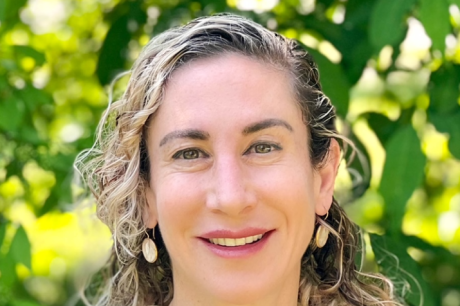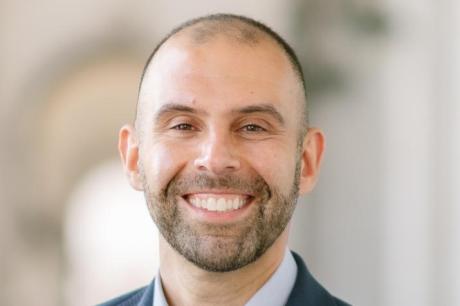Dozens of Duke seniors in the Global Health Capstone course presented their final global health projects last Tuesday for the Duke community, but that wasn’t the end of their class. Students are spending their final weeks sharing their findings with practitioners in the community where they based their projects in order to share their work and propose their ideas for implementing their recommendations.
Taught by DGHI faculty members David Boyd and Dennis Clements, the Capstone is the culmination of the global health certificate, in which students work in small teams to research a global health problem, consult with experts in the field and design and develop a practical solution for the problem.
Capstone students assessed a problem, developed interventions, curricula and manuals that address a variety of global health issues -- from refugee mental health and drug abuse education in North Carolina to prevention of child maltreatment in India, and increasing access to health care for pregnant women in Liberia.
One project team is presenting their recommendations for promoting nutritious choices in the grocery store to representatives from the Durham County Health Department. Another group is working with community partners in Robeson County, North Carolina to introduce an education curriculum to prevent prescription drug abuse for school children.
Students like Sabrina Darwiche said it was gratifying to realize that, as students, they can make a difference in global health. Darwiche’s team developed a manual for refugee resettlement caseworkers to put greater emphasis on refugee mental health by asking the right questions.
“I have had the pleasure of working with Capstone students for the last four years, and I never cease to be impressed by the quality of the projects,” said Boyd. “It is a delight to work with these students, and I could not be prouder of them.”
The exercise also helped students understand the value of teamwork and the intricacies of global health, realizing there are many players and factors to consider.
Rosalie Forman said the course made her realize how challenging it is to work together to comprehensively address a global health problem while considering cultural context, then package it in the most effective way. Her group designed a program that trains community health ambassadors and traditional birth attendants in rural areas of Liberia where maternal mortality is high.
“The students this year were amazing,” said Clements. “They worked so hard on such difficult subject areas and all came through with flying colors.”
Following graduation, some of the students will be conducting health-related research as Fulbright Scholars, going into the Peace Corps, or plan to pursue advanced degrees, including in the health and medical fields.



